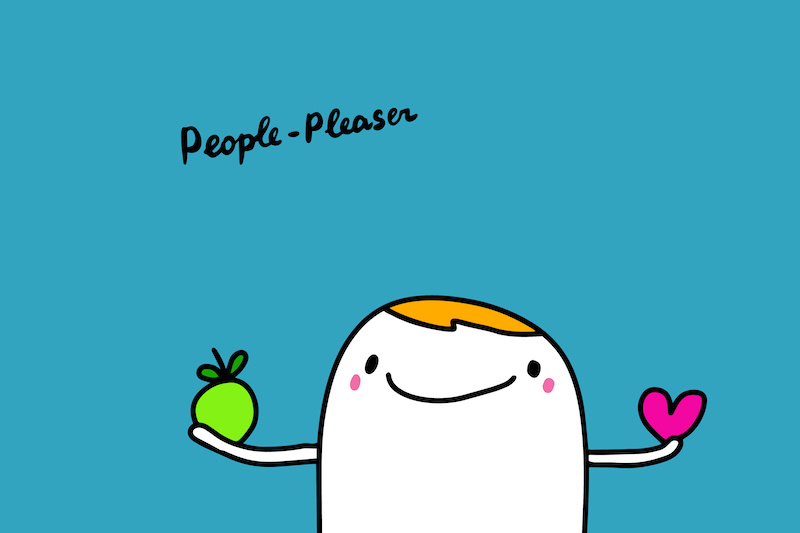Three Tips to Teach Your Child Emotional Intelligence

Emotional Intelligence (EI): Your ability to manage and understand emotions and relationships, your own as well as others’.
Research has shown that Emotional Intelligence is more vital to life success and satisfaction than general intelligence. This makes EI a very important skill for parents to teach their children.
The good news: Children automatically learn EI when they are raised by parents who have it themselves. Parents with EI are able to understand what their child is feeling and why. Their emotionally attuned responses to the child model and teach him how to read, understand, and respond to his own and others’ feelings in a healthy way.
The bad news: A parent who struggles with EI himself may lack the skills necessary to be able to teach them to his child. In other words, you can’t teach your child what you don’t know. This is why low EI is self-perpetuating through generations of families.
One way to make sure that you do not teach your child about emotion is to simply ignore his emotions while you are raising him (Childhood Emotional Neglect). If you seem not to notice that your child is upset, sad, angry, hurt, or anxious, you are subtly telling him that his sadness, anger, pain, or anxiety don’t matter. You are teaching him to ignore his own feelings.
Emotionally neglected children grow up to experience a variety of challenges, only one of which is low Emotional Intelligence. As adults, these children also struggle with excessive guilt and self-blame, feelings of emptiness, and a general lack of joy in life.
No loving parent wants to set her child up for that scenario. But parenting is probably the most complicated job in the world. In fact, it is built into the natural process of parenting that even the most loving parents will pass their own strengths and weaknesses on to their children. Often, the only way to stop that cycle is to consciously make the effort to override it.
Three Parenting Tips to Maximize Your Child’s Emotional Intelligence
- Pay attention. Work hard to see your child’s true nature. What does your child like, dislike, get angry about, feel afraid of, or struggle with? Feed these observations back to your child in a non-judgmental way so that your child can see herself through your eyes, and so that she can feel how well you know her.
Life Advantage: Your child will see herself reflected in your eyes, and she will know who she is. This will give her confidence in her life choices and will make her resilient to life’s challenges.
- Feel an emotional connection to your child. Strive to feel what your child is feeling (empathy), whether you agree with it or not. When you feel your child’s emotion, he will feel an instant bond with you.
Life Advantage: Your child will learn empathy and will have healthier relationships throughout his life.
- Respond competently to your child’s emotional needs. Do not judge your child’s feeling as right or wrong. Look beyond the feeling, to the source. Help your child name her emotion. Help her manage the emotion.
Life Advantage: Your child will have a healthy relationship with his own emotions. He will naturally know that his feelings are important and how to put them into words and manage them.
No parent can follow these tips perfectly, of course. This is not about perfection; it’s about making the effort. Effort in itself shows love and care. When your child sees you trying to understand his feelings or feel his feelings, whether you succeed or not, he receives a powerful message:
And what your child will hear:
You matter.
Childhood Emotional Neglect (CEN) is often invisible and unmemorable. To find out if it is at work in your life, Take The CEN Questionnaire. It’s free.
To learn more about Childhood Emotional Neglect, see my first book Running on Empty.
This article was originally published on Psychcentral.com and has been republished here with the permission of the author and PsychCentral
Your Parents: 10 Signs You May Need Some Healthy Boundaries

Few would disagree that parents have the most difficult job in the world. And the huge majority of parents are doing the very best they can for their children.
As much empathy as I have for parents (being one myself), today I will be talking with all who are on the other side of the fence: those of you who are grown up now and are feeling that your relationship with your parents is challenging in some way.
There are indeed an infinite amount of ways that a parent/child relationship can go wrong. Many are subtle or confusing and can leave all parties feeling burdened or hurt.
Especially if you know that your parents love you, you may end up baffled about your relationship with them, and wondering what is wrong.
6 Common Ways Adults Struggle With Their Parents
- You may feel guilty for not wanting to spend more time with them
- You may feel very loving toward them one minute, and angry the next
- You may look forward to seeing them, and then feel let down or disappointed when you’re actually with them
- You may find yourself snapping at them and confused about why you’re doing it
- You may get physically ill when you see them
- You may harbor anger at them, and feel there’s no reason for it
How does this happen? Why does this relationship have to be so complicated? Why can’t we just love our parents unconditionally?
Of course, there can be endless different explanations for any of these problems. But for most people, the answer lies somewhere in the area of what psychologists call individuation.
What is Individuation?
Individuation is the natural, healthy process of the child becoming increasingly separate from the parent by developing his or her own personality, interests, and life apart from the parent.
Individuation usually starts around age 13 but can be as early as 11 or as late as 16. Behaviors we think of as “teenage rebellion” are actually attempts to separate. Talking back, breaking rules, disagreeing, refusing to spend time with the family; all are ways of saying, and feeling, “I’m me, and I make my own decisions.”
Individuation is indeed a delicate process, and it doesn’t always go smoothly. When it doesn’t, and also goes unresolved, it can create a stressful or painful relationship between parent and adult child.
4 Ways Individuation Can Go Awry
- The parent does not know that the child’s individuation is natural and healthy, and discourages it. This parent may feel hurt by the child’s separation, or even be angered by it, making the child feel guilty for developing normally.
- The parent wants the child to stay close to take care of the parent’s needs, so actively discourages the child from separating.
- The parent is uncomfortable with the child’s needs, and so encourages the child to be excessively independent at too early an age (an example of Childhood Emotional Neglect or CEN).
- The child is held back from healthy individuation by some conflict or issue of his or her own, like anxiety, depression, a physical or medical ailment, or guilt.
When your adolescence gets off track in any of these ways, a price is paid by both you and your parents. Much later, when you’re trying to live your adult life, you may sadly find yourself feeling burdened, pained, or held back by your parents. On top of that, you might feel guilty for feeling that way.
So now the big question.
How Do You Know if You Need Some Healthy Distance From Your Parents?
- Do you feel held back from growing, developing, or moving forward in your life by your parents?
- Is your relationship with your parents negatively affecting how you parent your own children?
- Are you afraid of surpassing your parents? Would they be hurt or upset if you become more successful in life than they?
- Are you plagued with guilt when it comes to your parents?
- Are your parents manipulating you in any way?
- Are their needs coming before your own (the exception is if they are elderly or ill)?
- Were/are your parents abusive to you in any way, however subtle?
- Have you tried to talk with them and solve things, to no avail?
- Do you feel that your parents don’t really know you?
- Do your parents stir up trouble in your life?
If you answered yes to one or more of these questions, and you also feel burdened by your relationship with your parents, it may be a sign that you need some distance to maximize your own personal growth and health.
You and Your Parents
Yes, parenting truly is the hardest job in the world. But parents are meant to launch you, not limit you. If your individuation didn’t happen properly through your adolescence, you may need to work at separating from your parents now in order to have the healthy, strong, independent life that you are meant to live.
So what does distancing mean when it comes to parents? It doesn’t mean moving farther away. It doesn’t mean being less kind or loving toward them. It doesn’t necessarily mean doing anything drastically different. In fact, distance can be achieved by changing yourself and your own internal response to what happens between you. I know this sounds difficult and complicated.
Guilt is, for many, built into the adult separation process, unfortunately. So separating from your parents may be no less painful now, as an adult, than it was when you were an adolescent. But the good news is, you are grown up. You’re developed. You’re stronger. Now you can better understand what’s wrong.
To learn more about how even loving parents can have a blind spot to their child’s feelings, disrupting individuation, and to find out what you can do about it now, see the books Running on Empty: Overcome Your Childhood Emotional Neglect and Running On Empty No More: Transform Your Relationships With Your Partner, Your Parents & Your Children.
A version of this article was originally published on Psychcentral.com. It has been republished here with the permission of the author and Psychcentral.
4 Ways You Can Use Your Anger to Make Yourself More Powerful

Of all human emotions, the one that people struggle with the most is anger. That’s understandable!
After all, it’s the emotion with the most potential to get us into trouble. It can be exquisitely uncomfortable, and it’s the most difficult to control.
Many people find it easier to push anger down altogether (or suppress it) to avoid discomfort and conflict and to stay out of trouble.
Some wear anger like armor in hopes it will protect them from being hurt or mistreated.
Others go back and forth between pushing it down and erupting. In fact, these two things go together. The more you suppress your anger, the more intense it will be when it finally erupts.
If you were raised by parents who had low tolerance for your feelings (Childhood Emotional Neglect, or CEN), then you may be all too good at pushing your anger away; suppressing it and repressing it so that you don’t even have to feel it.
In fact, you may – especially if you have CEN – be so uncomfortable with the A-Word that you can’t even say it.
I’m frustrated
I’m annoyed
I’m anxious
you may say instead of, I’m angry.
If you’re not comfortable with your anger, you’re more likely to misread and mislabel it as something milder or more diffuse.
“Isn’t stopping yourself from feeling angry a good skill to have?” you may be wondering.
The answer is actually NO.
Research has shown how very important anger is to living a healthy life.
4 Reasons to Make Friends With Your Anger
- Anger is a beautiful motivator
Aarts et al. (2010) found that people who were shown a picture of an angry face were more driven to obtain an object that they were shown later. Anger is like a driver that pushes you to strive for what you want or need. Anger carries with it the message, “Act!”
Example Without Anger: Alana was getting weary of being overlooked at work. She was well-known to be skilled and reliable, and yet she was repeatedly passed over for promotion to manager. Silently she watched younger, less experienced employees move past her, one by one.
Example With Anger: Alana became angry when a less-experienced colleague was promoted. “I deserve an explanation for this. I have to get myself promoted or leave the company,” she realized. The next day she walked into her supervisor’s office and asked why she was passed over. She was promised the next promotion slot.
2. Anger can make your relationship better and stronger
Anger, when used appropriately, can be very helpful in communication:
Baumeister et al. (1990) found that hiding anger in intimate relationships can be detrimental. When you hide your anger from your partner, you’re bypassing an important message that he or she may very much need to hear.
Of course, it’s important to take great care in how you express your anger. Try your best to calibrate it to the situation and express it with as much compassion for your partner as you can.
Example Without Anger: Lance was tired of his wife Joanne’s clutter. She kept, it seemed to Lance, virtually everything. There were stacks of newspapers on the dining room table, five pairs of sneakers of various ages in their closet, and a roomful of clothes that their children had outgrown. Lance wanted that room for an office. “I’ll never get that room,” he thought resignedly. All this time Joanne had no idea that there was a problem.
Example With Anger: Lance was fed up with the clutter. He told Joanne that it was making him feel stressed and unhappy, and also angry at her. After several heated discussions, Joanne removed her personal clutter from the spare room so that Lance could make it his office. They made a truce to try to meet each other in the middle.
3. Anger can help you better understand yourself
Anger can provide insight into ourselves if we allow it.
Kassinove et al. (1997) asked a large sample of people how recent outbursts of anger had affected them. Fifty-five percent said that getting angry had led to a positive outcome. Many respondents said that the anger episode had provided them with some insight into their own faults.
Anger can help you see yourself more clearly. And it can motivate self-change.
Example Without Anger: Joanne was surprised when Lance told her how angry her clutter was making him. “That’s too bad, you’ll just have to deal with it,” she said dully while exiting the room. She promptly put it out of her mind because she didn’t want to think about it.
Example With Anger: “That’s too bad, you’ll just have to deal with it,” Joanne fired back immediately. She stormed out of the room and slammed the bedroom door. Sitting on her bed she felt enraged and criticized.
The next day Joanne woke up with a different perspective on the conflict. She looked around and saw her home as though through Lance’s eyes. She realized that she felt criticized by Lance’s request. “I need to get better at taking criticism,” she thought.
4. Anger helps you negotiate
Anger can help you get what you want.
In a study of negotiation by Van Kleef et al. (2002), people made larger concessions and fewer demands of participants who were angry than ones who were not angry.
Anger makes you more powerful, especially when it’s justified and expressed with thought and care. Lets revisit Alana, who needed to have a difficult conversation with her supervisor.
Example Without Anger: Alana walked timidly into her supervisor’s office. After chatting about the weather, she said casually, “So what do I need to do to get promoted?” Her boss answered her question and went on with her day.
Example With Anger: Alana knew she was angry and that she needed to manage her anger when talking with her boss if she wanted to be effective. She walked into her boss’s office and said, “I need to talk to you about something important.” Alana explained how upset she was by her co-worker’s promotion. Her boss explained that the promoted co-worker was an excellent employee. This made Alana even angrier. She pushed, “Yes, he’s really good. But so am I, and I have more experience and excellent skills,” she stated clearly. Her boss paused, surprised at Alana’s persistence. “You’re right,” she said. Her boss then promised Alana the next available promotion.
If you grew up emotionally ignored or in an environment that did not have the room or tolerance for you to get angry (CEN), some small part of your brain probably screams “STOP!” as soon as you get an inkling of anger. The reality is that it’s not easy to turn that around.
But you can do it. Start thinking of anger as a helpful emotion, not something to avoid. Pay attention to your anger, and try to notice when you’re feeling it. Stop saying “STOP!” to your anger. Instead, listen to your anger’s message, consciously manage your angry feeling, and let your anger motivate and energize you.
Anger, when properly managed and expressed, is power.
So when you suppress your anger, you’re suppressing your power.
And why would you do that?
To learn more about how Childhood Emotional Neglect makes you unaware of your feelings of anger see the book, Running On Empty: Overcome Your Childhood Emotional Neglect.
Find Purpose and Meaning Despite Childhood Emotional Neglect

One of the most painful symptoms of Childhood Emotional Neglect (CEN) is also, amazingly, the most directly fixable.
Who hasn’t, at some moments of their life, wondered what it’s all for?
What’s the point?
Why am I here on this earth?
What am I supposed to be doing?
Does anything really matter?
I have noticed that some people struggle more than others with these questions.
And I’ve also realized that there seems to be something about growing up emotionally neglected that predisposes you even more to this struggle.
“But what could that possibly be??!” you may be wondering, just as I have wondered for years.
Today, I’d like to share my best answers to all of these questions. Of course, I don’t claim to know the meaning of life. But I can surely talk about what makes life feel meaningful.
2 Things That Make Life Feel Meaningful
Most psychologists, I think, would agree that two key factors make life feel meaningful, and both are supported by research:
- Your Emotions: Your emotions drive, motivate, direct, and inspire you. The most memorable moments in your life are the ones in which you feel something. Awed, sad, overwhelmed, shocked, delighted, or disappointed, these moments lodge themselves in your memory. When you feel an emotion, whether it’s pleasant or unpleasant, you feel real. Feeling a feeling is a way of feeling alive. Emotions tell you that what is happening matters. They carry with them the message “this matters.”
- Your Relationships: Study after study has shown that it’s your connections to others that both anchor and stimulate you. Who is there for you when things get rough? Who’s present to celebrate with you and console you? To care for you and be cared for by you? These kinds of connections create the substance that makes life worth living.
These two important life factors offer keys to the struggle for purpose and meaning that many emotionally neglected people experience. When your feelings are under-validated as a child (CEN), you grow up pushing away, questioning, or numbing out your own emotions. This leads to 3 special challenges when it comes to feeling, as an adult, that your life is meaningful.
-
You are out of touch with your feelings. This undermines your search for meaning in 3 important ways:
a) It leaves you feeling, on some level, that you’re not fully alive.
b) The feelings that should be informing you about what matters to you are not available enough.
c) Feelings are a source of passion and direction. A shortage of these messages from within may leave you feeling lost and alone.
- Your relationships are overly one-sided: CEN leaves you more focused on caring for others. You give more in your relationships than you’re able to take. Your giving nature warms you and moves you, but its one-way nature may limit the depth of your relationships. And it may simply not be quite enough.
- You feel that you don’t matter: The unspoken message you received in childhood was, “Your feelings don’t matter.” But since your emotions are the most deeply personal part of who you are, what your child self heard was, “You don’t matter.” As an adult, this message undermines your feelings of life purpose and meaning. After all, if you don’t matter, how can your life matter?
Now back to the first sentence: “the most painful but most directly fixable.” Yes, it is true.
The Fix
What’s the best fix for all of this? Welcome your emotions back into your life.
I have seen over and over again that these three deceptively simple steps can make a huge difference in how important your life feels to you.
- Try to feel: This may sound strange but it actually works. Making an effort to have an emotion will start to yield results. You will start to feel more.
- Tune in to your feelings: Chances are, you’re having feelings all the time, but you are simply not aware of them. All this takes is focusing your attention more on what you’re feeling. Several times a day pause, focus your attention inward, and ask yourself, “What am I feeling right now?”
- Increase your feeling word vocabulary: An important part of getting in touch with your feelings is being able to put words to them. You can find an exhaustive Feeling Word List HERE (Click on the third purple CLICK HERE on the page).
I know it may be hard to believe, but to me, it’s abundantly clear:
The fuel of life is feeling. If we’re not filled up in childhood, we must fill ourselves as adults. Otherwise, we will find ourselves running on empty.
To learn more about Childhood Emotional Neglect, how it happens and how to recover from it, see my books Running Empty No More: Transform Your Relationships and Running On Empty: Overcome Your Childhood Emotional Neglect , and Take The Emotional Neglect Test for free.
This article was originally published on psychcentral.com. It has been updated and republished here with the permission of the author and psychcentral.
Everyday Struggle of a Notorious People Pleaser

Guest post by Joanna Rogowska:
I like to reward myself at the end of the week with a delicious meal with friends. It’s my weekly treat. I also like to check out new restaurants. So when my two good friends Lucy and Jane suggested meeting in our favorite burger place, I proposed a new Japanese restaurant instead. I had heard good things about the food and what caught my interest was their new interactive ordering system with overhead projection technology.
I’d read that each table in the restaurant was equipped with a built-in tablet. You could select your virtual tablecloth, explore the menu, project a picture of the meal onto your table, and of course, also order your food. I love new technological gadgets!
When we arrived, I fell in love with this place straight away – beautiful and authentic Japanese decor, lotus flowers, cherry blossoms, bamboo benches, and high-tech tables. A fantastic combination of traditional and modern Japan.
Lucy and I started ordering the meal, getting all excited about it. It was a really cool experience to be able to project the picture of each meal onto the plate in front of you. We played around with changing virtual table cloths, debating which one we were going to choose for our table. I realized that I was feeling something.
Playful, connected, excited, and happy.
As we were exploring the technological possibilities at our table, Jane suddenly called the waiter over and asked for a paper menu. “I really don’t know how to make this digital stuff work!” she told us. “It’s really not intuitive and annoying. I prefer a normal menu.”
Suddenly my pleasant feelings disappeared and a big sense of heaviness took their place. I suddenly felt overwhelmingly bad. I looked at Lucy and she seemed to continue enjoying looking through the menu and ordering her meal. But for me, as soon as Jane asked for a paper menu, I stopped enjoying the evening.
In the past, before learning how to master my emotions, I would have sat miserably throughout the rest of the meal feeling confused and simply “bad.” I would have let this ruin my evening. Now I knew better, and it was time to check in with my feelings to investigate what was going on. So I tuned in to my emotions.
Annoyed, Irritable.
Makes sense. I was looking forward to dinner today and suddenly I was not able to enjoy it. My intention was to relax and have a good time and now I was far from that, so I felt angry. But the big question was, why was I not enjoying the evening? I knew I had to dig deeper to find the right feelings.
Insecure, awkward, guilty, and ashamed.
As soon as I identified shame, I felt a sense of relief. It made so much sense for two reasons. First of all, I know I am a compulsive people pleaser. I tend to always put other people’s needs in front of my own. I cannot have a good time if I see that my friends are not enjoying themselves. So seeing Jane not enjoying the technology made me feel guilty for suggesting to go there.
But I knew there was more behind this feeling so I dug deeper. I had known that Jane was not a big fan of technology, yet I had still suggested this restaurant. How could I have been so inconsiderate? All I could think of was the fact that I was stupid because I couldn’t even pick the right restaurant for my friends…
Going through these feelings in my head brought me a sense of relief. I was feeling less and less overwhelmed and uncomfortable and beginning to feel some new feelings.
Clear, confident, and capable.
My feelings reminded me that the well-being of my friends was important to me. So I thanked my feelings for drawing my attention to the situation. I accepted my feelings and released them. I also accepted that my inner critic blew the situation slightly out of proportion, as things were actually going well. It was difficult to accept that, but it felt liberating to do so.
Finally, I reassured myself that Jane, having received her paper menu, was enjoying selecting her meal in a more traditional way and no one was thinking any less of me for choosing this location.
I once again felt what I had felt at the beginning of the evening.
Connected, joyful, and excited.
The dinner turned out to be fantastic. We had a great time and we were pleased with the new discovery we made and the food we ate.
How quickly I could have let my emotions take over and ruin my evening if I hadn’t paid attention to them and made the effort to understand them. That was a reminder to me once again of how important it is for me to observe myself and try to understand my feelings.
The author, Joanna Rogowska, is a researcher for FeelingMagnets.com. Feeling Magnets are a helpful tool to get you more in touch with your emotions and learn how to use them.
To learn more about how to recognize, use, and express your emotions see the book, Running on Empty.
9 Things the Emotionally Attuned Parent Says to Their Child

As we all swim together through the murky Sea of Parenting, I offer you some clear answers: three goals to keep in your mind at all times, and exactly how to achieve them.
If you’ve made many parenting mistakes, rest assured: You Are Not Alone.
Let’s face it, parenting is hard. For most of us, doing it right means facing our own demons. Because no one is exposed to our flaws, blind spots, or unresolved issues as much as the children who depend on us.
Unfortunately, all of those unresolved problems transfer automatically from ourselves to our children, unless we make a conscious effort to stop them. This is made more or less difficult for us parents by our own childhoods.
The Subtle But Dramatic Impact of Childhood Emotional Neglect
If you grew up with parents who subtly discouraged or discounted your feelings (Childhood Emotional Neglect), for example, then you’ll have a natural inclination, outside of your awareness, to do the same with your children. This is why Childhood Emotional Neglect, or CEN, is so rampant in today’s world. It transfers, unchecked and unnoticed, from one generation to the next.
This natural transfer process is aided by one simple fact: In today’s world, we are all focused primarily on how our children behave. We don’t want them to get in trouble at school or irritate others, right?
Although it’s very reasonable to assume that teaching a child to behave takes care of the emotional part, nothing could be further from the truth. In reality, it all happens in reverse. Our children’s behavior is driven by their emotions. So the best way to help our children to behave is to teach them how to manage their feelings.
The Keys to Emotional Intelligence
There’s another key reason to focus more on emotions with our children. In the last ten years, a large body of research has found that kids who are good at recognizing, tolerating, expressing, and managing emotions in themselves and others (high emotional intelligence) are more successful academically, make better leaders, and enjoy greater career success as adults.
I know what you’re thinking: “OK, so it’s important. How do you do it? Behavior is at least concrete and visible, but feelings are hidden, messy, and confusing. What’s a parent to do?”
So let’s get down to brass tacks. As we all swim together through the murky Sea of Parenting, I offer you some clear answers: three goals to keep in mind at all times, and exactly how to achieve them.
The Three Goals of the Emotionally Attuned Parent
- Your child feels a part of something. He knows he’s not alone. You’re always on his team.
- Your child knows that whatever she feels, it’s OK, and it matters to you. She will be held accountable for her behavior, but not for her emotions.
- Your child learns how to tolerate, manage, and express his feelings.
Any parent who accomplishes these skills well enough is raising an emotionally healthy child and an emotionally intelligent child. You don’t have to do it perfectly. You just have to do it well enough.
9 Things the Emotionally Attuned Parent Says to Their Child
| WHAT WE ALL TEND TO SAY | WHAT THE IDEAL PARENT SAYS |
| Stop Crying | Why are you crying? |
| Let me know when you’re done with your fit | That’s OK. Get it all out. Then we’ll talk. |
| Alright, enough! I’m done with this. | Let’s take a break so we can both calm down. |
| Fix the attitude! | You sound angry or upset. Are you? |
| You need to think before you act! | How’d this go wrong? Let’s think it through. |
| Go to your room until you can behave better. | I see you’re angry. Is it because…? |
| OK, OK, stop crying now so we can go in the store. | Look at me. Take a deep breath. Let’s count to five. |
| There’s nothing to be nervous about. | Everyone gets nervous. It’s OK. Let’s talk. |
| Don’t talk to me with that tone. | Try saying that again, but nicer so I can hear it. |
All children have very intense emotions, but they do not have the skills to manage them. When we are frustrated or overwhelmed by their expression of feeling, it becomes very difficult for us parents to manage what we’re feeling so that we can respond the right way to what they’re feeling.
No one sets out purposely to shame their child for having emotions. But the way we respond can easily, in very subtle ways, communicate to a child that he shouldn’t be feeling what he’s feeling.
Keep in mind that virtually all children have heard everything in the first column many times, and it’s OK. It will only cause damage (Childhood Emotional Neglect) if the child receives the subtle, unstated messages listed below too frequently:
* Your feelings are excessive.
* Your feeling is wrong.
* I don’t want to know what you’re feeling.
* Your feelings are an inconvenience for me.
* You need to deal with this alone.
* I don’t care what you feel; I only care about your behavior.
If you wince while you read those messages above, don’t despair! It’s not your fault. You’re simply doing what human beings do, and responding to your children as you were responded to as a child. Be assured, it is never too late to start responding differently.
Try using the “Ideal Parent” responses above as regularly as possible, keeping in mind that you will never be perfect because no one is. Watch and see if over time your child starts to respond to you differently. Watch to see how her behavior changes as she learns how to manage her own feelings.
To learn more about emotionally attuned parenting, how to raise your child with high Emotional Intelligence, and how to prevent CEN from being passed down, see the book, Running On Empty No More: Transform Your Relationships With Your Partner, Your Parents & Your Children. To learn much more about how CEN happens and how to heal it, see the book, Running on Empty.
To find out if you grew up with CEN Take The Emotional Neglect Test. it’s free.
A version of this article was originally posted on psychcentral.com. It has been updated and republished here with the permission of the author and psychcentral.
7 Common False Beliefs About Relationships

7 Common False Beliefs About Relationships
- Sharing your feelings with others will make you look weak.
- It’s best not to fight if you want to have a good relationship.
- Sharing your feelings or troubles with another person burdens them.
- Talking about a problem isn’t helpful. Only action solves a problem.
- Sharing your feelings or troubles with another person will chase them away.
- Letting others see your weaknesses puts you at a disadvantage.
- If you let other people see how you feel, they will use it against you.
As you read the list of beliefs above, did any jump out at you? Was there one, or two, or more, that you thought, “Hey, that one’s not false!”?
If so, you are not alone. Many, many people go through their lives following some or all of these guidelines. And many, many people are held back by them. These beliefs have the power to keep you at an emotional distance from others, damage your friendships and marriage, and leave you feeling alone in the world.
The beliefs are typically rooted in your childhood. They are often messages passed down from one generation to another. They take root in your mind and live there, sometimes outside of your awareness.
How Childhood Emotional Neglect Teaches You the False Beliefs
These ideas tend to thrive in any family that struggles with emotions, either by over or under-expressing it. They’re so common among folks who grew up with Childhood Emotional Neglect (CEN) that they’re included in my book, Running on Empty. All of the beliefs are based on false notions of how emotions work.
If you grew up in a family that didn’t understand how to manage, express or talk about emotion, you probably didn’t learn how and when to share or be vulnerable. You may have learned that it’s actually wrong to communicate about these things.
And chances are some of the 7 beliefs were communicated to you, either directly or indirectly.
The 7 False Beliefs Made True
- Letting people see your feelings usually makes them like you more. It also fosters intimacy.
- The hallmark of a strong, healthy relationship or friendship is the ability to have a conflict, process it together, and work through it together. In fact, fighting is often a sign of closeness.
- Sharing your feelings or troubles with the right person at the right time does not burden them. It increases warmth and caring from the other person.
- Talking about a problem with a well-chosen person can help you get perspective, feel less burdened, sort out your feelings and thoughts, and sometimes even provide solutions
- Sharing your feelings or troubles with the right person will make him/her feel closer to you.
- Letting another person see your weakness does not put you at a disadvantage unless the other person is the type of person to take advantage of you. Be aware of who you’re letting in. The huge majority of people will not take advantage.
- If you let someone see how you feel, they will know and understand you better, and that’s a good thing. The only exception to this is if they are actively trying to hurt you. Generally, if there are people like this in your life, you know who they are. Do not share with them.
How To Change Your Beliefs From False to True
- Choose your people carefully. Take care who you choose to open your heart to, as either a friend or lover. Focus on integrity, trust, and care. Pay attention to the other person’s intentions. None of the True Beliefs apply if the person is not trustworthy.
- Timing is everything. We all underestimate the importance of timing. Choose your moment, taking into account the other person’s mood, needs, and situation. The same message can have a very different impact given at the wrong time vs. the right one.
- Take chances. There is no intimacy without vulnerability. To change these beliefs, you will have to put yourself in uncomfortable situations.
- The Costanza Experiment (Taken from the book Running on Empty): Remember the Seinfeld episode when George decided to go through an entire week doing the opposite of what he would normally do? (If you’re under 40, you may not have seen this, but the concept will still work for you.) For you, this would mean doing the opposite of what you would normally do when it comes to sharing your feelings. Tell your friend about your work worries instead of keeping them to yourself; share your financial stress with your brother instead of pretending everything’s fine; fight it out with your husband and wife instead of avoiding conflict.
Take a chance, and see what happens. The False Beliefs will start to melt away as you begin to experience the value of trust, openness, and closeness. Your relationships will thrive, and a whole new world will open up to you.
To learn more about emotions, relationships, and Childhood Emotional Neglect (CEN) see the books Running On Empty: Overcome Your Childhood Emotional Neglect and Running On Empty No More: Transform Your Relationships.
5 Simple Steps to Learn Mindfulness That Really Work

Quite some years ago a colleague dragged me to a mindfulness training for mental health professionals. At that time, mindfulness was not considered a fully valid concept in psychology.
As a psychologist who valued science, I viewed it as nothing other than new age, mystical hippy nonsense. I anticipated a flaky conference, and I was not disappointed. At one point, they had us all stand up and mill about aimlessly while humming for 20 minutes. Then we had to ask and answer some very personal questions with the strangers next to us.
Ugh. Not my cup of tea.
Fast forward to 2021, where mindfulness and science have met and married. And oh, what a glorious union it is! Mindfulness studies have been pouring from many of the best researchers in the world for over a decade. And the meaning of mindfulness has matured from simply “being in the moment” to a richer, more complex definition.Continue reading
Childhood Emotional Neglect: How to Stop Your Fatal Flaw in its Tracks

The Fatal Flaw: A deep-seated feeling that something is wrong with you. You are missing something that other people have. You are living life on the outside, looking in. You don’t quite fit in anywhere.
If you grew up with Childhood Emotional Neglect (CEN), chances are, The Fatal Flaw is at work in your life.
If you pushed your feelings away as a child, you now lack access to them as an adult. You sense deep down that something is missing (it’s your emotions). And your life lacks the richness, connection and meaning that your feelings should be bringing to your life. This is the basic cause of the Fatal Flaw. Most people who have it are not aware of it, and this gives it incredible power.
The 7 Key Effects of Your Fatal Flaw
- You are not in touch with your gut feelings, so you don’t trust your gut (even though for the majority of CEN folks, their gut is most often right).
- It undermines your confidence to take risks.
- It makes you uncomfortable in social situations.
- It keeps many of your relationships at a surface level.
- It makes you question the meaning and purpose of your life.
- It makes you fear that if people get to know you well, they won’t like what they see.
- Therefore you are quite fearful of rejection.
6 Ways to Take Control of Your Fatal Flaw
- Become aware of your Fatal Flaw: This will take away its power.
- Understand that your Fatal Flaw is not a real flaw. It’s only a feeling.
- A feeling can be managed, so start to manage it. Pay attention to when you feel it, and how it affects you.
- Put it into words and tell someone about it.
- Override it every time that you possibly can. Do the opposite of everything your Fatal Flaw tells you to do.
- Start breaking down the wall between you and your feelings. Welcome them as the vital source of information, guidance, and richness that they are (even the painful ones).
Yes, your Fatal Flaw is powerful. But so are you. You have a great deal of personal power that is being drained by your Fatal Flaw.
So today’s the day. Declare war on your Fatal Flaw, and start using your weapons of awareness, your emotions, your intellect, and your words.
This is a battle that you can win. I promise.
To learn more about the Fatal Flaw, what caused it and how to overcome it, see the book Running on Empty: Overcome Your Childhood Emotional Neglect.
A version of this article was originally published on Psychcentral.com and has been republished here with the permission of the author.
Got Issues? It’s All Your Parents’ Fault
Everything that’s wrong in your life is the fault of your parents. Whatever your struggles, your mistakes and your pain, you are not to blame. You are an innocent victim of those who raised you.
At least that’s the way some folks interpret my definition of Childhood Emotional Neglect (CEN).
The definition of CEN: A parent’s failure to respond enough to the child’s emotional needs. People who grow up this way go forward into adulthood out of touch with their own emotions, feeling empty, alone and disconnected, and are baffled about what is wrong with them.
Here’s a comment that was posted on Ten Steps to Learn Self-Discipline:
Are you saying that when a parent fails to teach their children this skill well enough, that parent is guilty of Childhood Emotional Neglect? This article was insulting.
I’ve received many such comments. They point to one of the biggest barriers I have encountered in my efforts to bring the concept of Childhood Emotional Neglect to more people: the discomfort of blaming the parents.
Despite the overwhelming body of research proving it, many people strongly resist the fact that their parents’ treatment of them in childhood had a profound effect upon who they are as adults. It is uncomfortable to blame our parents for the problems and issues that we experience in adulthood. It feels like letting ourselves off the hook. Some people consider it “whining.”Continue reading

